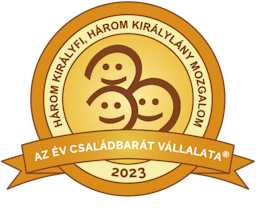THE NIGERIAN SCAM IS ALIVE AND WELL
In the spring, I received a beautiful message on Messenger saying that a banker lady was very interested in meeting me. Not because of what you might first think, of course, but because my name is very similar to the name of an account holder in a bank branch in Turkey who has passed away and I really need someone to help me access her late account, who unfortunately has no heirs. That would be me. Of course I deleted the message on impulse, but I got it again, along with a gmail address.
“Dear, Adrian Szabo
I write to you with a language translator. I have been in search of someone with this last name, Szabó, so when I saw your profile on Facebook I decided to add you and write to you this message to see how best we can assist each other.” …
Okay, I thought, so I registered an email account with the expected name and replied, wondering what I could get out of such a conversation. Within moments I received a quite fair-looking reply that the banker lady would certify that I was the heir of the deceased and help me to arrange for proof of this. If this was done, the $9.5 million in the account could be released and we could split it. I don’t know how many heirless gold dealers Adrián Szabo has tens of millions of dollars in savings in Isbank, but not many, that’s for sure.
“One late Mr. Adrian Szabó, a citizen of your country who was in Gold business here in Instanbul, had a fixed deposit with my bank in 2007 for 108 calendar months, valued at US$9,500,000.00 (Nine Million Five Hundred United State Dollars) the due date for this deposit was last year. Adrian Szabó, was among the death victims in April 30 Covid19 2020 Pandemic in Ankara province in Turkey.”
I hesitated as Adrian whether it was free, legal or not.

Just the basics to understand: Someone needs me, because of my supposed name, to access someone else’s money through a scam. How much nicer it is to be involved in a fraud than to have an African prince simply transfer a few million to me. Right?
Just like the Nigerian scam (or 419 scam), which is one of the oldest forms of internet fraud. The technique of the scam itself dates back to the age of the fax machine and even earlier, to the 19th century (Spanish Prisioner). The idea is that a person who appears to be rich – a ruler, a high-ranking official, a businessman – promises a large sum of money in exchange for a little help, for which all you have to do is provide details… Simple, isn’t it? Yet many people fall victim to such a simple scam.
My new friend and I agreed that, in the interests of trust, we would both send copies of our ID cards, although I was expected to provide a telephone number. I didn’t send a real ID picture either, just a photoshopped copy of the one I had received, in the form of a bank card and ID. The fraudster was so unpretentious that he could spot the fake by a simple glance. No phone numbers were exchanged, so we continued to correspond in increasingly urgent tones.

In the meantime, I looked around and easily found the real person behind the name, who had actually worked for the bank years ago, so a simple internet search might have given the impression that the story could be true, although I would have had to be very wishful and inattentive. It is a pity that this person is now working for another organisation, albeit in a fairly senior position. Of course, I contacted the person concerned through his company, but all I could find out was that legal proceedings were under way in connection with the matter. I would have been very curious to know what counter-measures were taken when it was discovered that personal data had been used for this fraud. There are currently nearly 100 active profiles in his name on Facebook, uploaded with pictures of various media events, mainly from the second half of 2022, but also some from 2017.

I corresponded with the scammers in the meantime, but we could not reach an agreement. Unfortunately, they did not want to send me direct contact information, and the e-mail is silent (which is still alive, but they no longer write to me). They must have got bored. It did get really boring that I didn’t send anything meaningful, they didn’t send anything. Maybe I managed to get them (or the MI they use, but that’s another story) busy for a few minutes
“My dear friend, I assure you that as soon as this transaction is done, the bank will transfer the money to any account in your country, so all you need to do now is to provide me with all the necessary details to my email address so that we can proceed with this transaction immediately.”
Just as a thought experiment, I ran a round of a few bank security departments, what if a corresponding controlled account was available for such a purpose. If I could show the fraudsters a few million dollar account with a verified phone number, they might be taken in by the lure of even greater risk than email on such a slip. I know, naive notion. Still, maybe with access to real account data, the fraudsters could be identified, not by a mealy-mouthed clumsy attempt like I make, but by real fraud detection. Unfortunately, given the risks and costs involved, this does not seem to be an achievable solution in general.
So this email is silent now, but the scammers are certainly not sleeping. That leaves the awareness raising. Articles like this one, blocking, conscious internet use and common sense will put an end to this sort of thing one day, but not any time soon. The last estimate of damage I found with the “Nigerian Prince type” scams is also in the millions of dollars a year…and the scammers are getting more adept.
In any case, if someone were to write to you, promising you big bucks… think instead of the motto: If something is too good to be true, it usually isn’t true.
Ask our experts!






